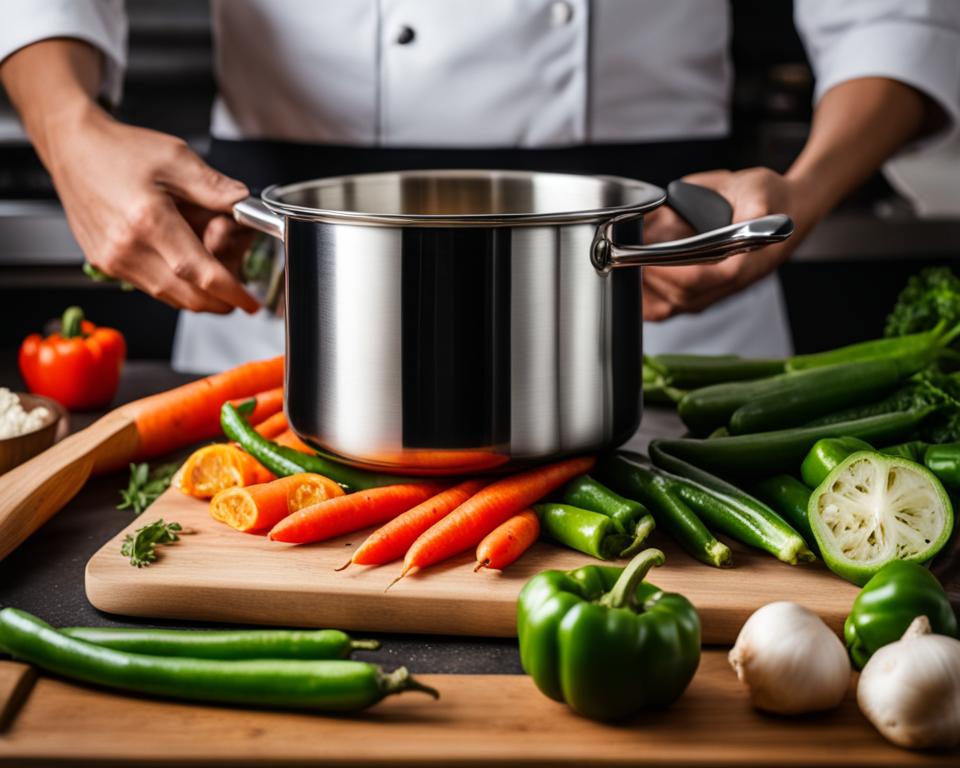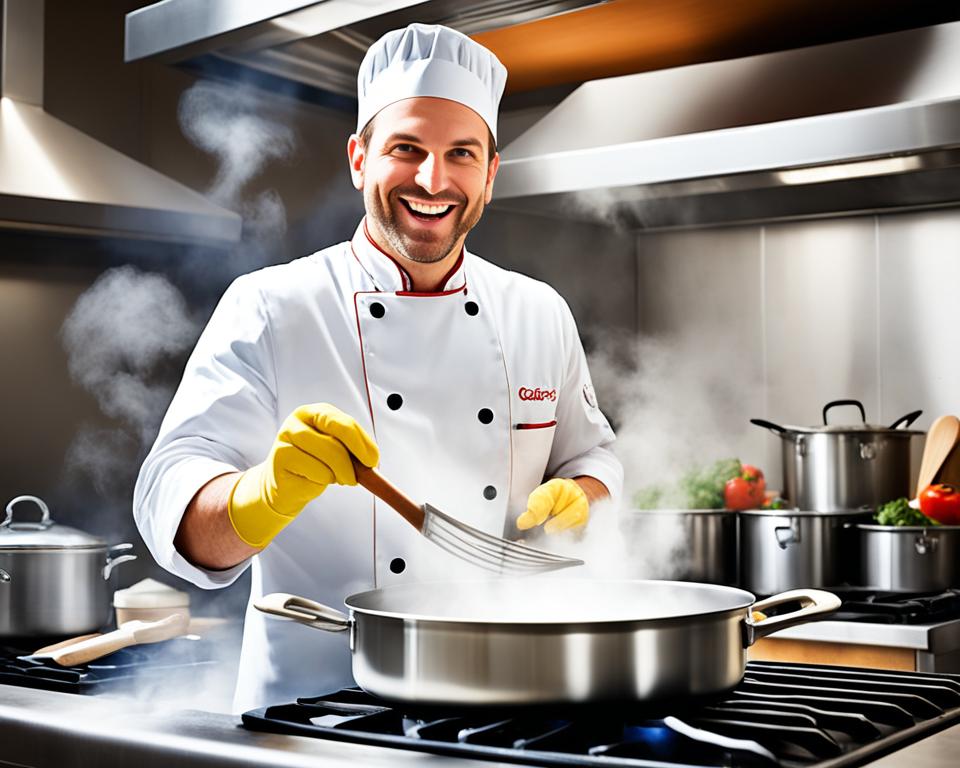Introduction
Cast iron skillets are a type of cookware that has been used for centuries. They are made from a single piece of cast iron, which makes them very durable and heat evenly. Cast iron skillets can be used for a variety of cooking tasks, from searing steaks to baking bread.
In this article, we will discuss the benefits of using a cast iron skillet, how to choose a cast iron skillet, how to season a cast iron skillet, and how to care for a cast iron skillet. We will also provide tips for cleaning a cast iron skillet and answer some common questions about cast iron skillets.
Benefits of using a cast iron skillet
Cast iron skillets are a popular choice for cooks of all levels, and for good reason. They are durable, versatile, and can be used to cook a variety of dishes. Here are some of the benefits of using a cast iron skillet:
- Cast iron skillets are very durable. They can withstand high heat and can be used on both the stovetop and in the oven.
- Cast iron skillets are versatile. They can be used to cook a variety of dishes, from simple grilled meats to complex casseroles.
- Cast iron skillets retain heat well. This means that food cooks evenly and quickly.
- Cast iron skillets develop a natural non-stick coating over time. This means that you can cook with less oil or butter, which is healthier for you.
- Cast iron skillets are easy to clean. Simply rinse with hot water and a little soap, then dry thoroughly.
If you are looking for a versatile and durable cooking pan, a cast iron skillet is a great option.
How to choose a cast iron skillet
When choosing a cast iron skillet, there are a few factors to consider.
- Size: The size of the skillet you need will depend on the number of people you typically cook for. A 10-inch skillet is a good all-around size, but if you cook for a large family, you may want a larger skillet.
- Weight: Cast iron skillets can be heavy, so it’s important to choose one that is comfortable for you to use. If you have wrist problems, you may want to choose a lighter skillet.
- Material: Cast iron skillets are typically made from either cast iron or carbon steel. Cast iron is heavier and more durable, while carbon steel is lighter and more responsive.
- Finish: Cast iron skillets can be either seasoned or unseasoned. Seasoned skillets are pre-treated with oil, which helps to prevent rust and makes them easier to clean. Unseasoned skillets need to be seasoned before use.
Once you have considered these factors, you can start shopping for a cast iron skillet. There are many different brands and styles of cast iron skillets available, so you’re sure to find one that meets your needs.
How to choose a cast iron skillet
When choosing a cast iron skillet, there are a few factors to consider.
- Size: The size of the skillet you need will depend on the number of people you typically cook for. A 10-inch skillet is a good all-around size, while a 12-inch skillet is ideal for larger families or for cooking larger dishes.
- Weight: Cast iron skillets are heavy, so it’s important to choose one that you can comfortably lift and maneuver.
- Handle: The handle of the skillet should be comfortable to hold, and it should be made of a material that won’t heat up too much when the skillet is in use.
- Construction: Cast iron skillets are typically made of either cast iron or carbon steel. Cast iron is heavier and more durable, while carbon steel is lighter and more responsive.
- Price: Cast iron skillets can range in price from $20 to $200. The price of a skillet will depend on the size, weight, handle material, and construction.
Once you’ve considered these factors, you can start shopping for a cast iron skillet. Here are a few of our top picks:
- Lodge 10.25-inch Pre-Seasoned Skillet: This is a great option for beginners, as it’s affordable and well-made.
- Mauviel M’heritage 12-inch Skillet: This is a high-quality skillet that’s perfect for experienced cooks.
- Smithey Ironware 12-inch Skillet: This is a luxurious option that’s made from American-made cast iron.
How to care for a cast iron skillet
Cast iron skillets are a great way to cook food, but they can also be a bit tricky to care for. Here are a few tips on how to keep your cast iron skillet in good condition:
- After each use, wash the skillet with warm water and a mild soap. Do not use harsh detergents or abrasive cleaners, as these can damage the seasoning.
- Rinse the skillet thoroughly and dry it immediately. Do not leave it to air dry, as this can cause rust.
- Once the skillet is dry, rub a small amount of oil on the surface. This will help to protect the seasoning and prevent rust.
- Do not put a cast iron skillet in the dishwasher. The harsh detergents and high heat can damage the seasoning.
- Do not use metal utensils on a cast iron skillet. The metal can scratch the seasoning and damage the pan.
- If the seasoning on your cast iron skillet starts to wear off, you can re-season it by following these steps:
- Clean the skillet thoroughly with warm water and soap.
- Rinse the skillet thoroughly and dry it completely.
- Place the skillet in a preheated 350°F oven for 1 hour.
- Coat the skillet with a thin layer of oil and place it back in the oven for another 1 hour.
- Allow the skillet to cool completely before using it.
By following these tips, you can keep your cast iron skillet in good condition for years to come.
VI. Common mistakes to avoid when using a cast iron skillet
When using a cast iron skillet, there are a few common mistakes that you should avoid in order to prevent damage to the pan and to ensure that your food comes out tasting great.
* **Don’t use soap to clean your cast iron skillet.** Soap can strip away the seasoning from your pan, which is what gives it its non-stick properties. Instead, simply wash your pan with hot water and a stiff brush. If there are any stubborn bits of food stuck to the pan, you can use a little bit of vinegar or baking soda to help loosen them.
* **Don’t put your cast iron skillet in the dishwasher.** The harsh chemicals in dishwasher detergent can damage the seasoning on your pan.
* **Don’t use metal utensils in your cast iron skillet.** Metal utensils can scratch the seasoning on your pan, which can lead to rust. Instead, use wooden or silicone utensils.
* **Don’t overheat your cast iron skillet.** Cast iron skillets can withstand high heat, but they can also be damaged if they are overheated. When cooking with a cast iron skillet, make sure to preheat the pan over medium heat before adding oil or food.
* **Don’t let your cast iron skillet soak in water.** If you accidentally spill water on your cast iron skillet, dry it off immediately. Soaking your pan in water can cause the seasoning to rust.
By following these tips, you can avoid damaging your cast iron skillet and ensure that your food comes out tasting great.
VII. Recipes that use a cast iron skillet
Here are some recipes that you can make in a cast iron skillet:
- Pancakes
- French toast
- Steak
- Chicken
- Fish
- Vegetables
- Pizza
- Cookies
- Brownies
For more recipes, please visit our recipe page.
Tips for cleaning a cast iron skillet
VIII. Tips for cleaning a cast iron skillet
Cast iron skillets are known for being easy to clean, but there are a few things you can do to make the process even easier.
First, always let your skillet cool completely before cleaning it. This will help prevent the cast iron from warping.
Next, scrape off any food residue with a wooden spatula or spoon. Do not use metal utensils on a cast iron skillet, as this can damage the seasoning.
If there is any stubborn food residue, you can soak the skillet in a solution of hot water and dish soap for a few minutes. Be sure to rinse the skillet thoroughly afterward.
Finally, dry the skillet completely and rub it with a small amount of oil. This will help to protect the seasoning and keep the skillet from rusting.
Here are a few additional tips for cleaning a cast iron skillet:
- Never use harsh chemicals or abrasive cleaners on a cast iron skillet.
- Do not put a cast iron skillet in the dishwasher.
- If you are not going to use your cast iron skillet for a long period of time, store it with a thin coat of oil.
FAQs about cast iron skillets
Here are some common questions about cast iron skillets and their answers:
**Q: What is the difference between a cast iron skillet and a carbon steel skillet?**
A: Cast iron skillets and carbon steel skillets are both made from ferrous metals, but they have different properties. Cast iron is denser and heavier than carbon steel, and it has a higher thermal mass. This means that cast iron skillets heat up more slowly than carbon steel skillets, but they also retain heat better. Carbon steel skillets are lighter and more responsive than cast iron skillets, and they are easier to season.
**Q: Which is better, a cast iron skillet or a carbon steel skillet?**
A: There is no definitive answer to this question, as the best skillet for you will depend on your individual needs and preferences. Cast iron skillets are more durable and can withstand more abuse than carbon steel skillets. They are also more versatile and can be used for a wider variety of cooking tasks. Carbon steel skillets are lighter and more responsive than cast iron skillets, and they are easier to season. They are also a good choice for people who are looking for a more affordable option.
**Q: How do I season a cast iron skillet?**
A: To season a cast iron skillet, you will need to:
- Wash the skillet with hot, soapy water and dry it thoroughly.
- Apply a thin layer of oil to the skillet, and then place it in a preheated oven at 350 degrees Fahrenheit for 30 minutes.
- Repeat steps 1 and 2 two or three more times.
Once the skillet is seasoned, you can cook with it without adding any additional oil.
**Q: How do I care for a cast iron skillet?**
To care for a cast iron skillet, you will need to:
- Wash the skillet with hot, soapy water and dry it thoroughly.
- Rub a thin layer of oil on the skillet after each use.
- Do not use harsh detergents or abrasive cleaners on the skillet.
- Do not put the skillet in the dishwasher.
By following these tips, you can keep your cast iron skillet in good condition for years to come.
**Q: What are some common mistakes to avoid when using a cast iron skillet?**
Some common mistakes to avoid when using a cast iron skillet include:
- Not seasoning the skillet properly.
- Using harsh detergents or abrasive cleaners on the skillet.
- Putting the skillet in the dishwasher.
- Overheating the skillet.
- Leaving food in the skillet for too long.
By avoiding these mistakes, you can help to extend the life of your cast iron skillet and ensure that it performs well for years to come.


